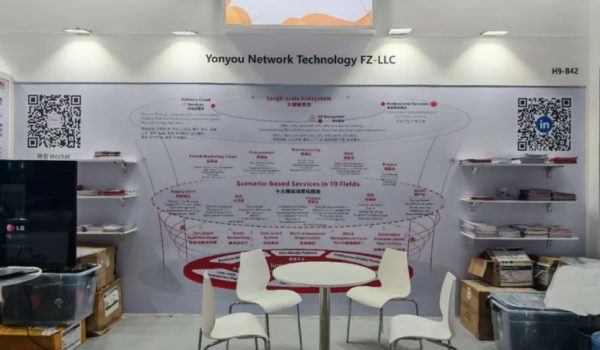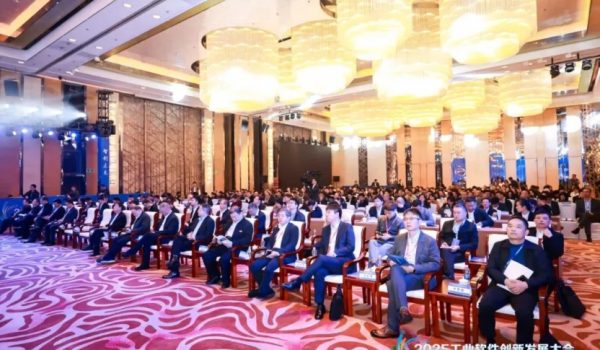On July 31, 2025, the State Council held an executive meeting to review and approve the “Opinions on the In-depth Implementation of the ‘AI Plus’ Action Plan.” The meeting emphasized that with the accelerated iteration and evolution of artificial intelligence technology, it is essential to deeply implement the “AI Plus” initiative, vigorously promote the large-scale commercial application of AI, and fully leverage China’s advantages such as a complete industrial system, a large market scale, and abundant application scenarios. The goal is to accelerate the widespread adoption and deep integration of AI across all areas of economic and social development, forming a virtuous cycle where innovation drives application, and application promotes innovation.
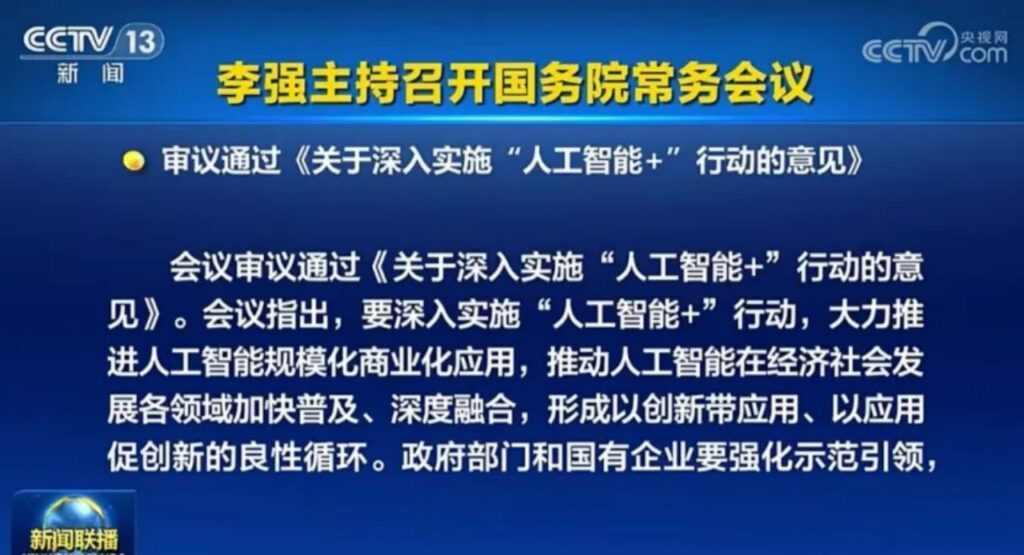
The meeting also pointed out that government departments and state-owned enterprises should strengthen their role as demonstration leaders by supporting technology implementation through open scenarios and other means. Efforts should be made to optimize the AI innovation ecosystem by enhancing computing power, algorithms, and data supply, increasing policy support, strengthening talent development, and building an open-source, open-ecosystem to provide strong support for industrial growth. It is necessary to improve security capabilities and accelerate the formation of a dynamic, agile, and diversified AI governance framework.
State-owned Assets Supervision and Administration Commission (SASAC) “AI+” Special Action
On February 19, 2025, SASAC held a central enterprises “AI+” special action deepening deployment meeting. The meeting required strengthening the support elements for AI development in central enterprises, incorporating AI development as a key focus in the formulation of the “15th Five-Year Plan” for enterprises, fostering more technology-leading companies, and incubating a batch of startups. State-owned central enterprises are urged to increase capital investment, insist on combining industrial development with investment, promote production through investment, and continuously expand long-term, strategic, and patient capital for AI development. Talent introduction and cultivation should be optimized by establishing a talent evaluation system more aligned with industry characteristics and creating a more tolerant, free, and patient development environment. The meeting also released implementation points for the SASAC central enterprises “AI+” special action and launched a special project for building strategic high-value scenarios.
Driving AI Implementation in Enterprises
AI can bring multidimensional value enhancement to enterprises while addressing market competition and development needs, specifically reflected in the following aspects:
• Achieving Core Goals and Enhancing Competitiveness: The core objectives of AI implementation in enterprises are clear, including efficiency improvement, cost reduction, precise operations, and risk control. AI can handle repetitive tasks and efficiently process large volumes of work, directly reducing labor costs and improving efficiency. In the era of big data, its data analysis and prediction capabilities support refined operations, helping enterprises accurately grasp market demands. AI can also monitor data in real time and build risk prediction models to provide early warnings of potential risks, assisting enterprises to enhance comprehensive competitiveness and move toward sustainable development amid fierce competition.
• Driving Business and Management Innovation: By effectively applying AI technologies, enterprises can achieve qualitative leaps in cost reduction, efficiency improvement, precise operations, and risk control, thereby driving fundamental innovation in business models, products and services, customer experience, and organizational management, achieving strategic transformation and value elevation.
• Aligning with Technological Development and Industry Trends: AI has evolved from a laboratory concept to widespread application, penetrating all industries and reshaping business logic, becoming a core driver of industrial innovation. As a core technology, AI enables enterprises to evolve from “manual business” to “human-machine collaborative business,” and ultimately achieve “autonomous business,” keeping pace with industry development trends.
Yonyou BIP: Empowering AI Application Implementation in Enterprises
With 37 years of focus on enterprise services, Yonyou BIP follows the philosophy of “technology-driven business innovation.” Based on next-generation digital and intelligent technologies such as AI, big data, and cloud computing, and adopting architectural designs like metadata-driven, model-driven, and separation of data and application, Yonyou BIP offers a platform of capabilities, tools, and resource services integrating platform services (PaaS), application services (SaaS), business services (BaaS), data services (DaaS), and intelligent services (AIaaS). It covers 10 business domains including R&D, procurement, manufacturing, marketing, projects, supply chain, finance, human resources, assets, and collaboration, enabling digital-intelligent services for product and service innovation, organizational and management transformation, and workstyle change to drive enterprise and industry business innovation.
Enterprises need to build a unified digital-intelligent platform to support data governance, knowledge governance, intelligent agent construction, multimodal large model integration, intelligent agent permission management, and intelligent development and construction.
Yonyou BIP’s PaaS platform—iuap—provides an integrated intelligent foundation combining application platform, data platform, intelligence platform, development platform, integration platform, cloud technology platform, and mainstream large models. It offers enterprises a unified, stable technical support base for AI applications. The collaboration among platforms facilitates orchestration of multiple models, rapid development, deployment, and efficient management of AI applications and intelligent agents, lowering technical barriers and application costs.
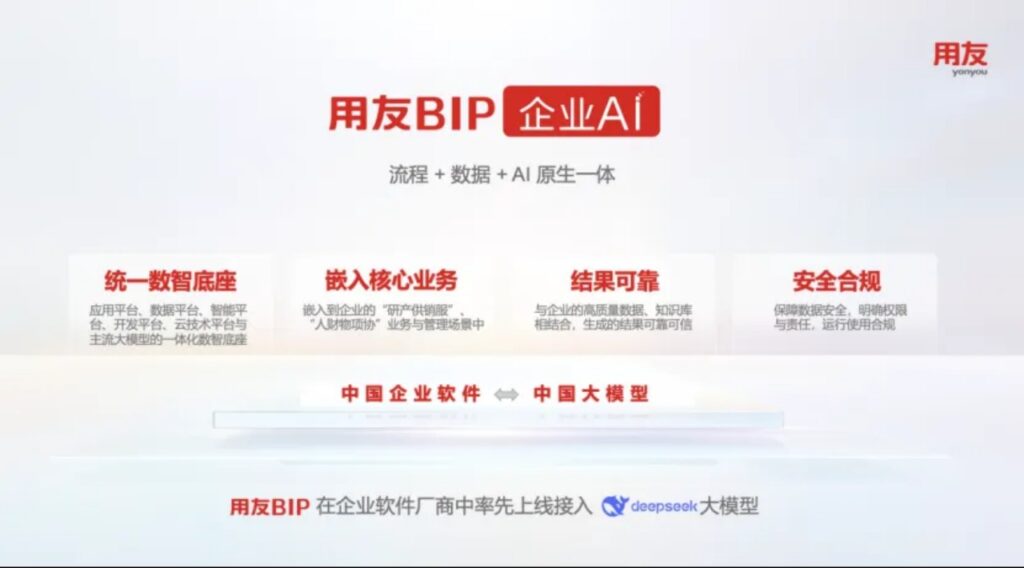
• The application platform enables human-machine collaboration and permission control, supporting the secure invocation of cross-system skills by AI agents.
• The data platform enhances data quality through an AI governance toolbox, providing high-quality “fuel” for AI.
• The intelligence platform, with the YonGPT enterprise service large model at its core, integrates technologies such as machine learning and RAG, supporting multi-model collaboration and rapid AI agent development. The concept of “Agent Matrix = Large Models + Small Models” is a key trend in current AI agent development. Based on this core idea, Yonyou BIP Enterprise AI has built an agent matrix tailored to match the core business and management scenarios of enterprises.
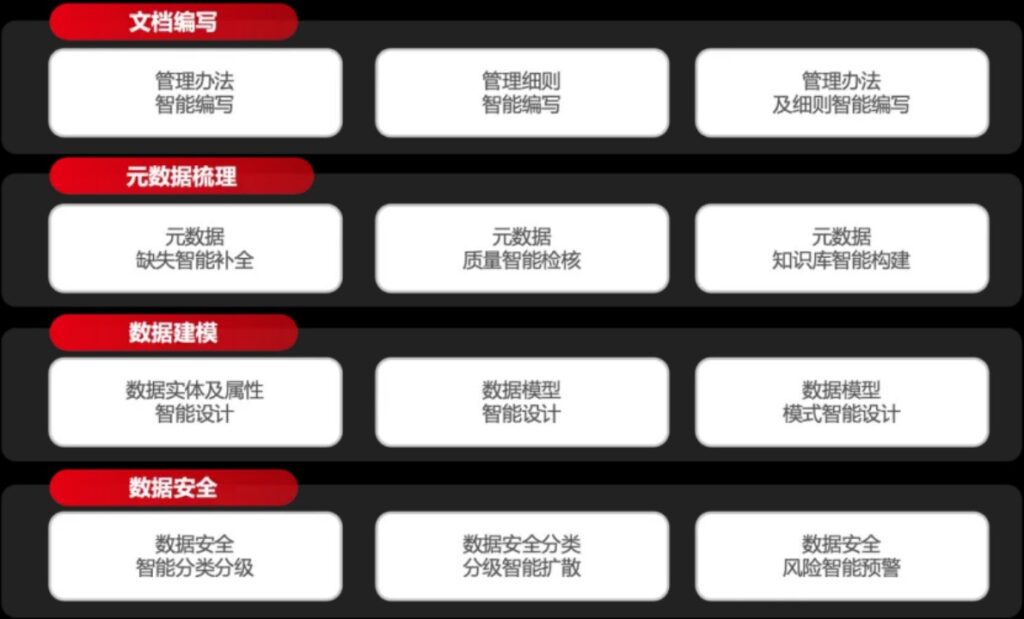
Reliable Results: By combining large models with small models and leveraging enterprise private knowledge base RAG technology, model hallucinations are eliminated, enabling precise knowledge retrieval, as exemplified by YouZhiKu.
Security and Compliance: Unified permission management controls agent data access, while YonGPT’s end-to-end security management covers data, training, deployment, and other stages to ensure compliance.
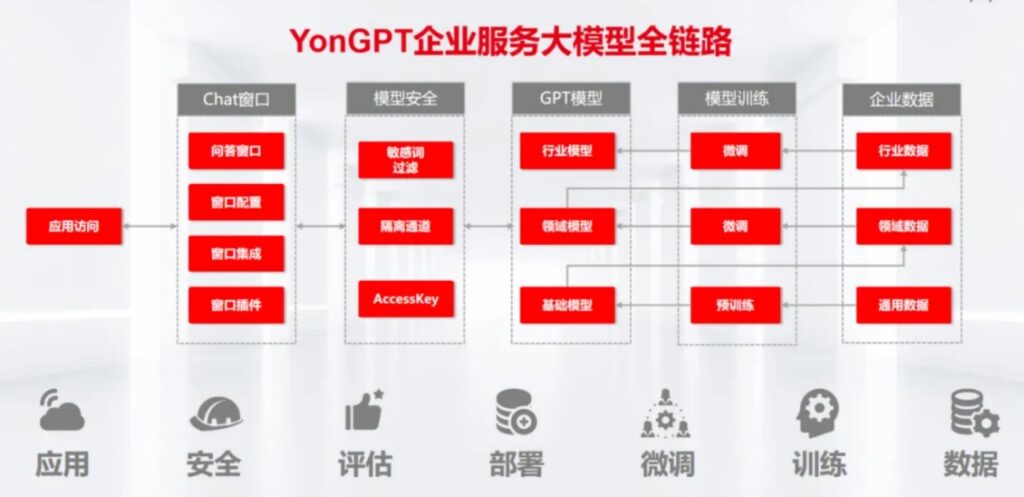
Yonyou BIP, driven by the dual engines of “technology + business,” has already helped enterprises realize AI adoption and accelerate their journey toward digital–intelligent transformation.
Igniting a New Digital–Intelligent Foundation, Enabling Enterprise AI: Technology Summit Invitation to Explore the Future of Digital–Intelligent Transformation Together
In an era where AI technology is reshaping business logic and driving industrial innovation, the 2025 Global Business Innovation Conference, hosted by Yonyou, will be grandly held from August 15 to 17, 2025, at the Shenzhen World Exhibition & Convention Center (Bao’an District). Enterprise digital–intelligent transformation has now entered the “value creation” deep-water stage. During the conference, to help enterprises overcome the challenges of AI implementation and accelerate their digital–intelligent process, the “Igniting a New Digital–Intelligent Foundation, Enabling Enterprise AI” Technology Summit will be held on the afternoon of August 16 as a core session of the conference, focusing on technological breakthroughs and practical implementation.
Core Values of the Summit
• Decoding the Yonyou BIP Technology Architecture: An in-depth interpretation of the innovative design of a unified digital–intelligent foundation, including a flexible metadata-driven architecture, native integration of “process–data–intelligence,” and technological breakthroughs in YonGPT enterprise service large models and multi-agent collaboration.
• Solving AI Implementation Challenges: Addressing common enterprise pain points such as weaknesses in data governance, difficulties in system integration, and insufficient model reliability, the summit will share how to leverage a combined strategy of “next-generation enterprise software + data governance + large model adaptation” to deeply embed AI into core business scenarios such as finance, supply chain, and human resources.
• Sharing Leading Practical Cases: Analyzing real-world experiences of digitally transformed enterprises using Yonyou BIP to implement AI+ scenarios, demonstrating tangible value in cost reduction, efficiency improvement, and precision operations.


